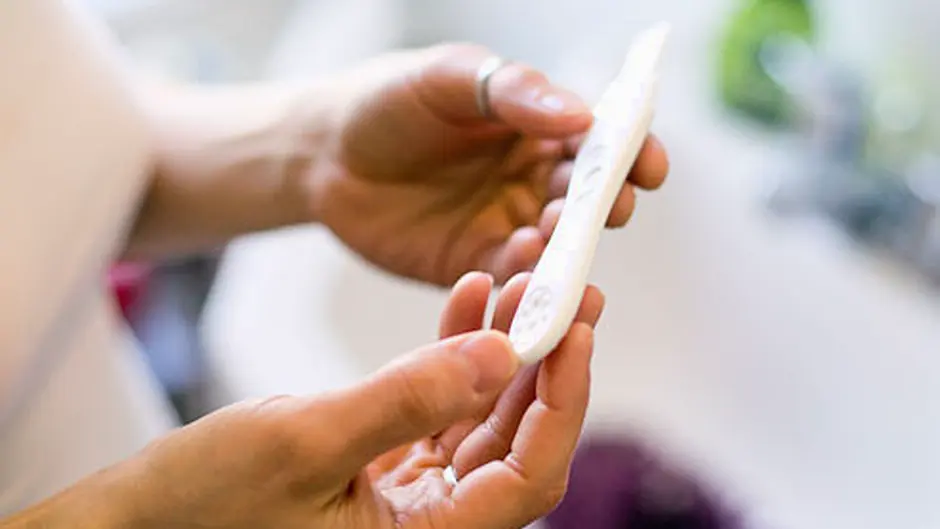By Rosie Shelley A recent report that caught my eye suggested that Christmas was the best time to try for a baby, which has less to do seasonal festivities than it does with plain old vitamin D. Scientists in the US analysed 270,000 pregnancies over 12 years, and found that December conceptions resulted in the highest birth rates. The mothers to be receive most of their vitamin D exposure, from sunlight, at the later stage of their pregnancy, resulting in a healthy birth.
By Rosie Shelley
A recent report that caught my eye suggested that Christmas was the best time to try for a baby, which has less to do seasonal festivities than it does with plain old vitamin D. Scientists in the US analysed 270,000 pregnancies over 12 years, and found that December conceptions resulted in the highest birth rates. The mothers to be receive most of their vitamin D exposure, from sunlight, at the later stage of their pregnancy, resulting in a healthy birth.
A Yale study demonstrated that 93% of the infertile participants had inadequate levels of vitamin D, and there’s been a growing acceptance of its role in reproductive success. We know that vitamin D is needed to make sex hormones and healthy eggs, whilst balancing the reproductive cycle. Other research this year showed that it also boosts sperm mobility, and that good levels of sun exposure (sunlight produces vitamin D and cycle-regulating hormone melatonin) can raise the chance of getting pregnant by a third. An observational study established that a Mediterranean style diet, which is rich in vitamin D from plenty of oily fish (the only significant food source), made women 40% more likely to conceive. A diet of real, whole foods (which means there’s no room left for junk and refined foods that actually deplete your nutrient reserves) has been shown to result in the highest fertility rates. That means a rainbow of vegetables and fruit, proteins (including organic animal produce, beans and lentils, nuts and seeds), wholegrains and healthy fats. Avoid trans/hydrogenated fats, mostly found in commercial baked and fried goods – they actually disrupt hormones and every other aspect of health, and may soon be either banned or limited legislatively.
Vitamin D is an emerging part of the picture, but there are many nutrients that work together to promote your chances of getting and staying pregnant. Chief among them are the antioxidants vitamins C, E, betacarotene, selenium and zinc, which are supplied by the kind of wholefood diet I’ve described. These antioxidants function in too many ways to mention, but basically they protect the cells, including those of the reproductive system. They ensure the quality of eggs and sperm and promote hormonal health, and supplementing them has been proven to boost conception rates by many times. To take one example, it was reported in May that good levels of lycopene (the antioxidant that gives tomatoes their red colour) can increase a man’s sperm count by up to 70%.
Vitamin C is vital for healthy, mobile sperm; vitamin E and selenium protect the integrity of the sperm and the egg and help prevent miscarriage, while zinc is involved in every aspect of reproduction. Co-enzyme Q-10 is another antioxidant that has the same crucial benefits, but natural bodily levels fall as we age and it’s difficult to get much from foods (there’s a little in fish) so a supplement would be a good idea.
For hormone and cycle regulation, miscarriage prevention, good quality sperm, stress relief and much more you need various B vitamins, and there are few of us that wouldn’t benefit from a high strength B complex supplement such as Sona’s. And of course anyone who might become pregnant should take folic acid, which helps prevent birth defects. Iron deficiency has been linked with a 60% increased risk of infertility. Calcium and magnesium (dairy products, nuts and seeds, leafy greens, wholegrains) are necessary to maintain a pregnancy once established.
And finally, you need to ensure a good intake of omega-3 fats, which most of us are lacking. Found in oily fish, and to some degree in linseed and other seeds, walnuts and leafy greens, they are central to the health of the reproductive (and every other) system as well as the normal development of a foetus.
As far as the practicalities are involved: get to know your cycle and listen to your body, but a study out just this month overturned the old idea of abstaining for a while beforehand. It turned out that the second, or newest of two sperm samples made a successful conception over three times more likely. And other research found that sperm is healthiest and fastest, apparently, at 6.25pm. Happy Christmas and good luck!
THINGS TO AVOID
Being under or overweight, crash dieting, undue stress (implicated in a quarter of cases of infertility), smoking, excess alcohol or coffee, fizzy drinks and processed foods, drugs; hormone-disruptors such as trans/hydrogenated fats, non-organic animal produce, processed soya products, tinned and plastic wrapped foods, unnecessary medications, decongestants, painkillers, pesticides, heavy metals, industrial paints and chemicals, commercial sunscreens/toiletries/toothpastes/sexual lubricants/household cleaners (buy yours at the healthfood shop), antibacterial hand cleansers, aerosols; inactivity (or excess exercise), and leaving it too late!
And men: avoid hot baths and steam rooms, long bike rides, tight/synthetic underwear, laptops on laps, and mobiles in hip pockets.
SUPPLEMENTS
Vitamin D; vitamin B complex; antioxidant complex including betacarotene (women who might become pregnant should not take vitamin A but this is its safe precursor), C, E, selenium and zinc; omega-3 oils (if you don’t eat oily fish); co-enzyme Q-10.
For women: folic acid; calcium and magnesium; Floradix (if iron levels are low).
For men: the amino acid L-arginine (unless you suffer from cold sores) has shown good results.








